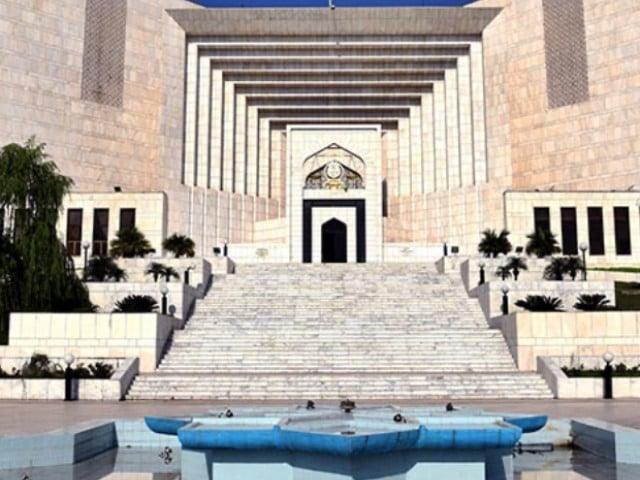The Supreme Court continued to hear the petitions on Wednesday regarding the trial against civilians in military courts with lawyer Salman Akram Raja, lawyer for a conviction in May 9 riots presenting arguments to court. In response to a question from Justice Hasan Azhar Rizvi, lawyer Salman Raja declared that if a civilian is found guilty of espionage for a hostile country, they would be tried under the law of official secrets. With reference to the Kulbhus Jadhav case, Raja noted that in the modern age it is impossible to suspend a person’s fundamental rights and place them under the control of a commander. Raja also clarified that the provisions of Sections 2-1 and D2 of the Army were adopted by Parliament in 1967, and he claimed that the Supreme Court could review the sections without visiting Brig FB Ali case, where a retired military officer was attempting in a military Court as civil. Justice Jamal Mandokhail asked if the court is bound by its previous judgments or by Pakistan’s constitution. While recognizing the high respect for the Supreme Court orders, Raja replied that the court is not bound by them. Justice Mandokhail then asked, "What if the Constitution is changed?"
Replied Raja, "The situation would change," Adding this Article 75 did not exist at the time of the FB Ali trial. Raja also emphasized that judicial restraint procedures have evolved globally. He pointed out that trials behind closed doors are no longer performed in this era, and even for military staff, a 19th century court would be inappropriate by 2025. At this time, lawyer Aitzaz Ahsan stated that he had represented he had represented Major Ishtiaq and Ayaz Sipa in the FB Ali case. He described how the trial took place in Attock Fort prison, with all items destroyed afterwards. Lawyers were exposed to body searches before traveling to make sure no documents were taken out of the premises. For a slight moment, Justice Jamal Mandokhail asked Raja about his political affiliation and remembered that when Raja’s party was in power, it adopted active legislation regarding civil lawsuits in military courts. Raja clarified, "I wasn’t part of PTI at the time and I’ve generally been in line with the opposition."



